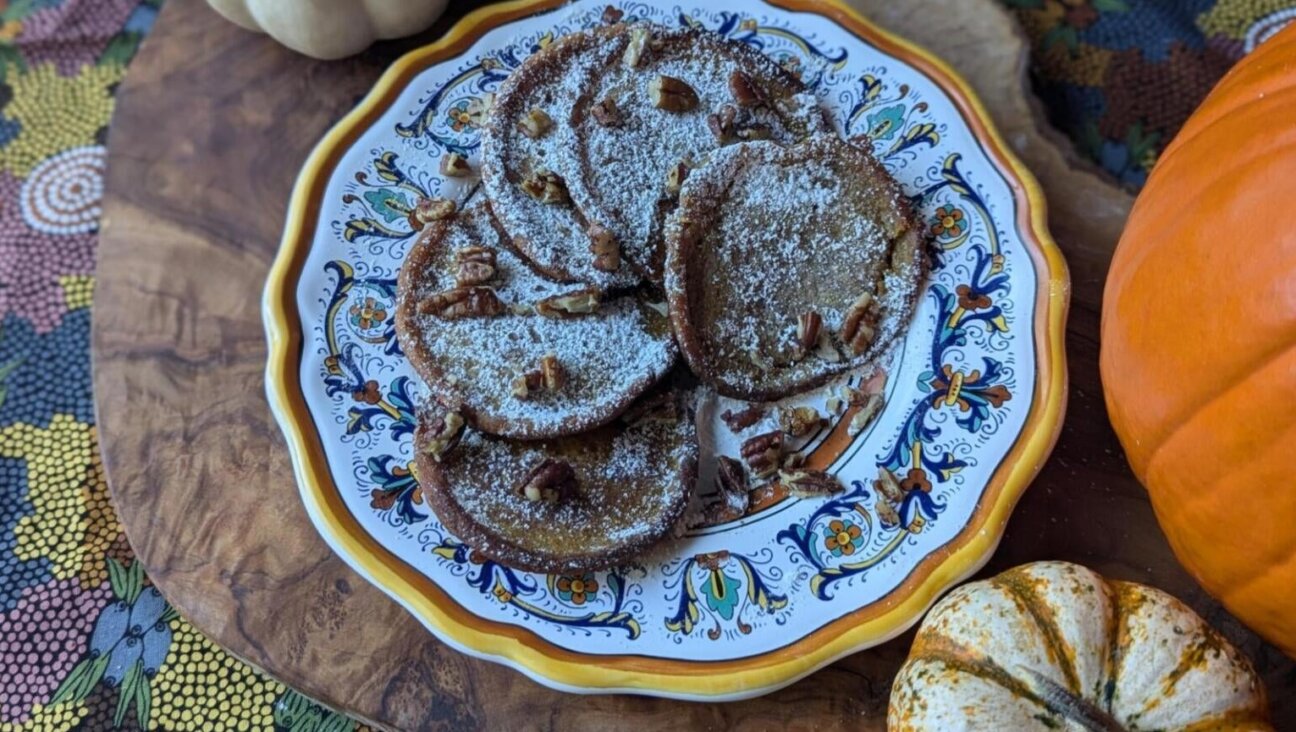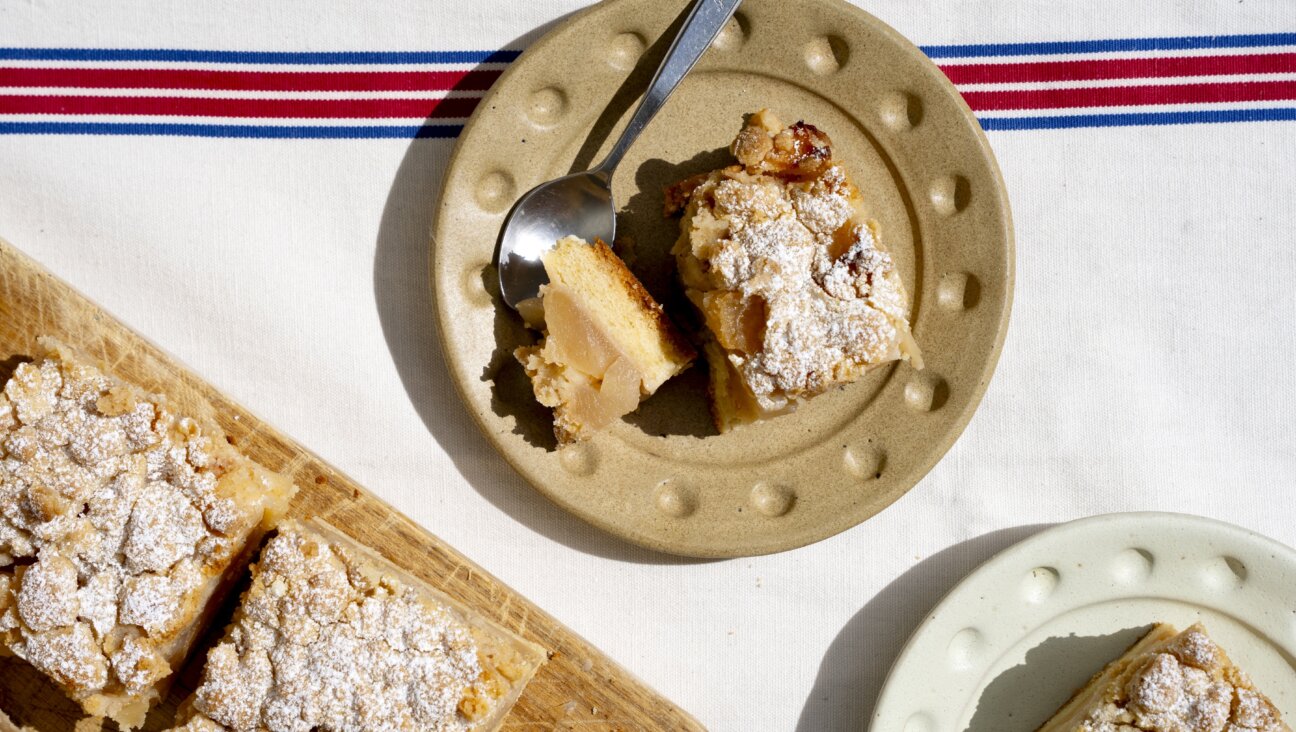Staying Gluten-Free During the Chagim

Graphic by Angelie Zaslavsky
While those of us on a gluten-free diet may have our daily eating habits under control, the chagim (Jewish Holidays) present a whole new array of challenges. Unless you’re preparing a holiday feast in your own home where everything is under control and to your own standards, it’s often difficult to eat out — even if it’s with family.
For those of you gluten-free folks out there, hopefully your family is open to helping you navigate your way successfully through the holiday while keeping everyone happy. Just remember: many delicious dishes can be prepared easily sans gluten and so many are naturally gluten-free, such as salads, soups, sides…unfortunately just not a typical noodle kugel (unless you’re going to be adventurous and make your own egg noodles) nor a typical challah. Here is a quick guide to navigating Rosh Hashanah gluten-free with a few recipe links and ideas to help you out at this holiday season. Chag Sameach!
A Guide to a Gluten Free Rosh Hashanah
Gluten Free Challah:
If you prepare a recipe with gluten-free oats, you can still say the motzi. There are quite a few recipes via a google search, and I’ll be posting one in the coming months on this site.
A note about challah: it doesn’t work to substitute your regular recipe with gluten-free flour 1:1. Trust me. You will end up with a brick that cost you about $15 that no one wants to eat. Try out one that’s been tested as gluten-free and you’ll be much happier.
Soups:
If you eat meat, there’s nothing wrong with a delicious bowl of chicken soup; however, make sure that the matzah balls were not also simmering in the soup.
If you’re vegetarian, I highly recommend a curried butternut squash apple soup. It’s naturally gluten free, so delicious and seasonal. It also keep really well so it’s perfect for making ahead. The linked recipe uses butter, but leave it out (without substitution) for a meat meal.
Salads:
Try an arugula salad with pomegranate seeds and a pomegranate vinaigrette as a delicious Rosh Hashanah salad. The bitter arugula greens are a wonderful contrast to the richness of the rest of the meal.
Entrée:
Most chicken dishes – as long as they’re without flour (often used as a thickener) – are just fine. If your hosts make brisket and use a bottled sauce, make sure it’s safe and free of hidden gluten – such as modified food starch or edible starch, barley malt or simply malt flavoring, to name a few.
For vegetarians, I often recommend sticking with lots of sides. Temeph (without barley), tofu and beans are also your friends.
Sides:
– Shredded Vegetable Kugel (recipe below)
– Roasted Vegetables make wonderful sides – just make sure to keep them in the oven long enough to really caramelize. This might take up to an hour for some vegetables!
– Grain Sides (like quinoa, rice, and wild rice) are all great options, and with the addition of chopped nuts, dried fruit and minced herbs, they provide an instant and simple side dish.
– Sautéed Garlicky Greens with golden raisins keep well, are delicious and so healthy.
Dessert:
I love making a gluten free Apple Crisp at this time of year. Simply substitute the oats for gluten free oats, and if your dish must be pareve, substitute Earth Balance. I like this recipe because it’s simple!
Shredded Apple-Vegetable Kugel Recipe
I first made a version of this custardy kugel recipe over Chanukah. I was looking for a way to get the flavors of latkes without the fat, and frankly, without the work. So, I pulled out my trusty food processor and got to work.
Changing a few of the ingredients to more seasonally appropriate fare makes for a delicious vegetarian and gluten-free dish that’s perfect for Rosh Hashanah. It uses apple to give a little bit of sweetness and other vegetables that you are likely to have on hand. Feel free to improvise – add sweet potatoes, parsnips, green onions – whatever you have or whatever you like. Held together with milk or pareve milk alternative (almond would be perfect here), eggs and almond flour (which helps bind and adds protein), and you have a great dish that’s a lot healthier than a typical kugel and will please your whole family. It’s also delicious with applesauce, sour cream (or vegan sour cream), or even horseradish.
Horseradish?! That’s right – what’s normally paired with horseradish? Gefilte fish, of course. This dish is not only a delicious hot kugel, but eaten cold tastes amazingly similar to gefilte fish – at least the slightly sweet vegetable-studded baked loaf gefilte fish my mom makes. This dish will certainly make many future appearances at my vegetarian gluten-free chag table, or on a random weeknight when I miss the gluten-filled fish dishes of my childhood.
Serves 4-6
Ingredients
1 medium onion
1 medium zucchini (8 oz)
3 carrots, peeled (8 oz)
1 granny smith apple (8 oz)
2 Yukon gold potatoes (8 oz)
4 large eggs
¼ cup milk, or pareve milk alternative
1 teaspoon salt
¼ teaspoon fresh grated nutmeg
¾ cup almond flour, divided
Procedure
1) Preheat oven to 375F. Prepare 8×8 casserole dish (or similar size; can be oval or round) with nonstick spray or oil. Coat bottom of pan with ¼ cup almond flour.
2) Using a food processor with the standard blade, pulse onion until minced (but not pulverized!). Leaving onion in bowl, change blade to shredded attachment. Shred zucchini, carrots, potatoes and apples. Transfer to a large bowl.
3) Beat 5 eggs until frothy. Add milk, salt, nutmeg and remaining almond flour. Mix into vegetable mixture until completely combined.
4) Pour into casserole dish and place in oven. Bake for 1 hour, or until firm and golden brown on top.
Elisheva Margulies is the founder of Eat With Eli, a natural foods culinary service based in St. Louis.















